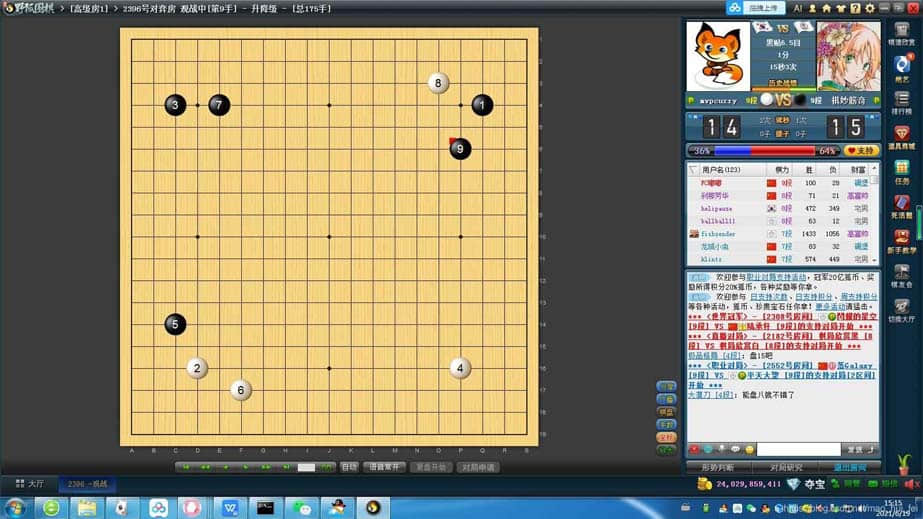本文实例讲述了Django实现图片文字同时提交的方法。分享给大家供大家参考。具体分析如下:
jQuery为我们网站开发解决了很多问题,使我们的网站用户体验大大的提高了。举个简单的例子,我们用AJAX技术来实现对表单的异步提交,使用户在体验上有了很大的改观,用户在提交数据的同时还可以干一些其他的事情。
不过,今天在开发中遇到一个特别头痛的问题,刚开始不知道,以为可以实现,纠结了将近4个小时之久,但结果很是令人失望。
问题是这样的:为了提高用户体验,我决定使用AJAX异步提交,于是我用jQuery的$.post去异步提交表单数据,文本信息可以很轻松的提交,但是,却怎么也无法提交图片数据。怎么办呢?
在网上查了很多资料,后来发现jQuery不支持图片上传(附件上传),但是有相关的插件,于是我开始慢慢琢磨,开始用另一个专门上传文件的插件jquery.ajaxfileupload.js,折腾了很久,总可以上传图片了。但是新的问题有产生了。
通过ajaxfileupload来异步上传图片的同时,却不能提交文本数据。囧啊…….
在网上查了很多资料,折腾了许久,没有Django开发的相关资料,怎么办?自己想办法…….
后来找到了解决方案,跟大家分享一下:
思路:
由于使用jquery.ajaxfileupload.js插件不能传递自定义的参数,肿么办?自己改写插件呗。碰巧,网上有别人改过的现成代码,二话不说,先拿来试试。以下即是我试验的过程。
1. 前台页面(部分代码):
<table border="0" width="100%">
<form action="." method="post" id="annex_form_2"></form>
<tbody>
<tr>
<td class="col_name" nowrap="nowrap" width="26%">证书名称:</td>
<td width="64%"><input size="65" class="input_general" id="prove_name_2" maxlength="50" name="prove_name"
type="text"></td>
<td nowrap="nowrap" width="7%"></td>
<td nowrap="nowrap" width="3%"><a rel="nofollow noopener noreferrer" href="javascript:void(0);" onclick="SubmitAnnexInfo(2)" title="保存"><img
src="/static/img/hr_manage/btn_save.gif" alt="点此保存"></a></td>
</tr>
<tr>
<td class="col_name">证件类型:</td>
<td><select id="prove_type_2" name="prove_type">
<option selected="selected" value="1">身份证</option>
<option value="2">学位证</option>
<option value="3">其他证</option>
</select></td>
<td> </td>
<td> </td>
</tr>
<tr>
<td class="col_name">证书描述:</td>
<td><input size="80" class="input_general" id="prove_desc_2" maxlength="60" name="prove_desc" type="text"></td>
<td> </td>
<td> </td>
</tr>
<tr>
<td class="col_name">附件地址:</td>
<td><input size="45" class="input_general" id="prove_url_2" maxlength="45" name="prove_url" style="border:0px;"
type="file"></td>
<td> </td>
<td> </td>
</tr>
<tr>
<td colspan="4">
<hr>
</td>
</tr>
</tbody>
</table>
2. 更改后的jquery.ajaxfileupload.js:
jQuery.extend({
createUploadIframe: function(id, uri)
{
//create frame
var frameId = 'jUploadFrame' + id;
if(window.ActiveXObject) {
var io = document.createElement('<iframe id="' + frameId + '" name="' + frameId + '" />');
if(typeof uri== 'boolean'){
io.src = 'javascript:false';
}
else if(typeof uri== 'string'){
io.src = uri;
}
}
else {
var io = document.createElement('iframe');
io.id = frameId;
io.name = frameId;
}
io.style.position = 'absolute';
io.style.top = '-1000px';
io.style.left = '-1000px';
document.body.appendChild(io);
return io
},
createUploadForm: function(id, fileElementId, data)
{
//create form
var formId = 'jUploadForm' + id;
var fileId = 'jUploadFile' + id;
var form = $('<form action="" method="POST" name="' + formId + '" id="' + formId + '" enctype="multipart/form-data"></form>');
var oldElement = $('#' + fileElementId);
var newElement = $(oldElement).clone();
$(oldElement).attr('id', fileId);
$(oldElement).before(newElement);
$(oldElement).appendTo(form);
//增加文本参数的支持
if (data) {
for (var i in data) {
$('<input type="hidden" name="' + i + '" value="' + data[i] + '" />').appendTo(form);
}
}
//set attributes
$(form).css('position', 'absolute');
$(form).css('top', '-1200px');
$(form).css('left', '-1200px');
$(form).appendTo('body');
return form;
},
ajaxFileUpload: function(s) {
// TODO introduce global settings, allowing the client to modify them for all requests, not only timeout
s = jQuery.extend({}, jQuery.ajaxSettings, s);
var id = new Date().getTime()
var form = jQuery.createUploadForm(id, s.fileElementId, s.data);
var io = jQuery.createUploadIframe(id, s.secureuri);
var frameId = 'jUploadFrame' + id;
var formId = 'jUploadForm' + id;
// Watch for a new set of requests
if ( s.global && ! jQuery.active++ )
{
jQuery.event.trigger( "ajaxStart" );
}
var requestDone = false;
// Create the request object
var xml = {}
if ( s.global )
jQuery.event.trigger("ajaxSend", [xml, s]);
// Wait for a response to come back
var uploadCallback = function(isTimeout)
{
var io = document.getElementById(frameId);
try
{
if(io.contentWindow)
{
xml.responseText = io.contentWindow.document.body?io.contentWindow.document.body.innerHTML:null;
xml.responseXML = io.contentWindow.document.XMLDocument?io.contentWindow.document.XMLDocument:io.contentWindow.document;
}else if(io.contentDocument)
{
xml.responseText = io.contentDocument.document.body?io.contentDocument.document.body.innerHTML:null;
xml.responseXML = io.contentDocument.document.XMLDocument?io.contentDocument.document.XMLDocument:io.contentDocument.document;
}
}catch(e)
{
jQuery.handleError(s, xml, null, e);
}
if ( xml || isTimeout == "timeout")
{
requestDone = true;
var status;
try {
status = isTimeout != "timeout" ? "success" : "error";
// Make sure that the request was successful or notmodified
if ( status != "error" )
{
// process the data (runs the xml through httpData regardless of callback)
var data = jQuery.uploadHttpData( xml, s.dataType );
// If a local callback was specified, fire it and pass it the data
if ( s.success )
s.success( data, status );
// Fire the global callback
if( s.global )
jQuery.event.trigger( "ajaxSuccess", [xml, s] );
} else
jQuery.handleError(s, xml, status);
} catch(e)
{
status = "error";
jQuery.handleError(s, xml, status, e);
}
// The request was completed
if( s.global )
jQuery.event.trigger( "ajaxComplete", [xml, s] );
// Handle the global AJAX counter
if ( s.global && ! --jQuery.active )
jQuery.event.trigger( "ajaxStop" );
// Process result
if ( s.complete )
s.complete(xml, status);
jQuery(io).unbind()
setTimeout(function()
{ try
{
$(io).remove();
$(form).remove();
} catch(e)
{
jQuery.handleError(s, xml, null, e);
}
}, 100)
xml = null
}
}
// Timeout checker
if ( s.timeout > 0 )
{
setTimeout(function(){
// Check to see if the request is still happening
if( !requestDone ) uploadCallback( "timeout" );
}, s.timeout);
}
try
{
// var io = $('#' + frameId);
var form = $('#' + formId);
$(form).attr('action', s.url);
$(form).attr('method', 'POST');
$(form).attr('target', frameId);
if(form.encoding)
{
form.encoding = 'multipart/form-data';
}
else
{
form.enctype = 'multipart/form-data';
}
$(form).submit();
} catch(e)
{
jQuery.handleError(s, xml, null, e);
}
if(window.attachEvent){
document.getElementById(frameId).attachEvent('onload', uploadCallback);
}
else{
document.getElementById(frameId).addEventListener('load', uploadCallback, false);
}
return {abort: function () {}};
},
uploadHttpData: function( r, type ) {
var data = !type;
data = type == "xml" || data ? r.responseXML : r.responseText;
// If the type is "script", eval it in global context
if ( type == "script" )
jQuery.globalEval( data );
// Get the JavaScript object, if JSON is used.
if ( type == "json" )
eval( "data = " + data );
// evaluate scripts within html
if ( type == "html" )
jQuery("<div>").html(data).evalScripts();
//alert($('param', data).each(function(){alert($(this).attr('value'));}));
return data;
}
})
3. 调用方法
//保存附件信息
function SaveAnnexInfo() {
var prove_name = $("#id_prove_name").val(); //从界面得到值
var prove_type = $("#id_prove_type").val();
var prove_desc = $("#id_prove_desc").val();
$.ajaxFileUpload({
url: "/test/annex_info /", //请求的Url地址
secureuri:false,
fileElementId:'id_prove_url',
dataType: 'json',
data: { //加入的文本参数
"prove_name":prove_name,
"prove_type":prove_type,
"prove_desc":prove_desc
},
success: function(data) {
asyncbox.tips('操作成功!', 'success');
},
error: function() {
asyncbox.tips("上传失败,请检查文件是否符合格式要求。");
}
});
}
4. Python后台处理(代码片段)
if annex_form.is_valid():
annex_info = annex_form.save(commit=False)
#获取上传
annex_url = request.FILES.get('prove_url','') #取附件
annex_info.entry = entry_info
annex_info.prove_url = annex_url
annex_info.save()
return HttpResponse(1) #操作成功
return HttpResponse(0) #操作失败
希望本文所述对大家的Python程序设计有所帮助。
以上就是Django实现图片文字同时提交的方法。我肩上抗着,背上背着,手里提着,都是那么重,那么大的包。浑身湿透,汗流浃背,又那么的精疲力尽,舍不得放下任何一个包,尽管自己的呼吸都感到非常困难!更多关于Django实现图片文字同时提交的方法请关注haodaima.com其它相关文章!





